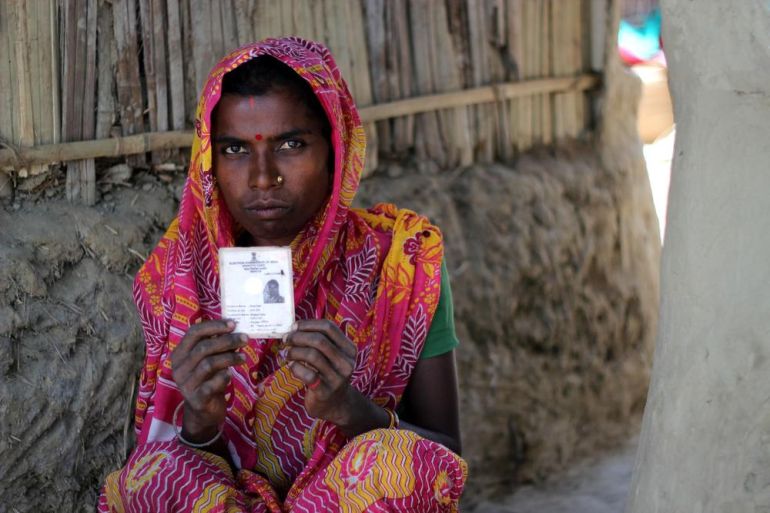In Pictures
In Pictures: The ‘rat eaters’ of India
Musahar community in Bihar’s Darbhanga district still live in extreme poverty and face social stigma.

Darbhanga, Bihar – Far away from the high-decibel political campaigns in India’s parliamentary elections, a group of semi-naked children frantically search for something to eat in the marshland of their village in the eastern Indian state of Bihar.
These children belong to the Musahar community (“Musahar” meaning “rat eaters” in Bhojpuri), a socially marginalised community placed at the bottom rung of India’s hierarchical caste system.
About 250 families from the community have been living in Kubaul village in Darbhanga district for the past 150 years.
“Earlier our meals were dependant on the availability of rats and grains that we would procure from the rat holes,” Malhu Sada, 74, a member of the community, told Al Jazeera. “However, things are changing for some families as their children have gone to different states to work. We now catch rats mostly during the harvesting season.”
The state government has accorded them Maha Dalit status, which makes them eligible for various government schemes that have failed to lift the community out of poverty and backwardness.
Narayan Ji Choudhary, founder of Mithila Gram Vikas Parishad (MGVP), an NGO that works for the welfare of the community, said: “The condition of Musahars is the worst of the lot. Some of the lower caste communities work as bamboo artisans, cobblers or cleaners, but Musahars are unskilled labourers. This is the reason that they are the lowest rung in the caste hierarchy even in the scheduled castes.”
Residents of Kubaul village have decided to boycott the current elections for being discriminated against.
“All the neighbouring villages have electricity with all the basic amenities, but we still live in such inhuman conditions. There aren’t any schools and the nearest school is 2km away,” Kusum Lal, 72, said.
“Children have to cross a river to reach school and the river is full throughout the season. During the rainy season, our village gets cut off from everything as we don’t even have a road to reach our village. Our demand is ‘road nahi, toh vote nahi’ (No road, no vote),” he added.
The community found in the states of Bihar and Uttar Pradesh are landless and don’t have their own livestock. While some manage to buy food, most still have to procure food every day, which involves scrounging whatever they can such as small fish, snails and even cockroaches.












